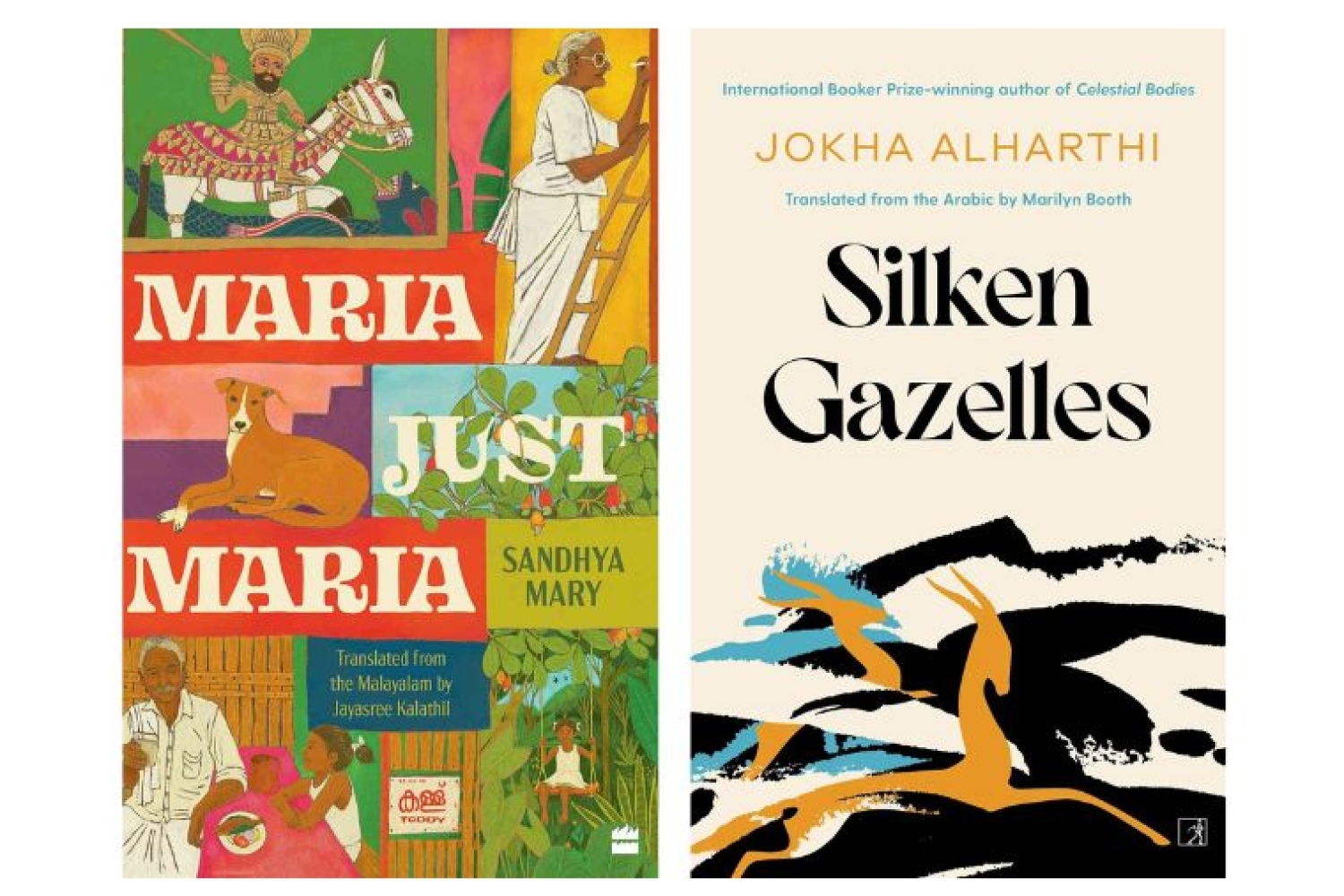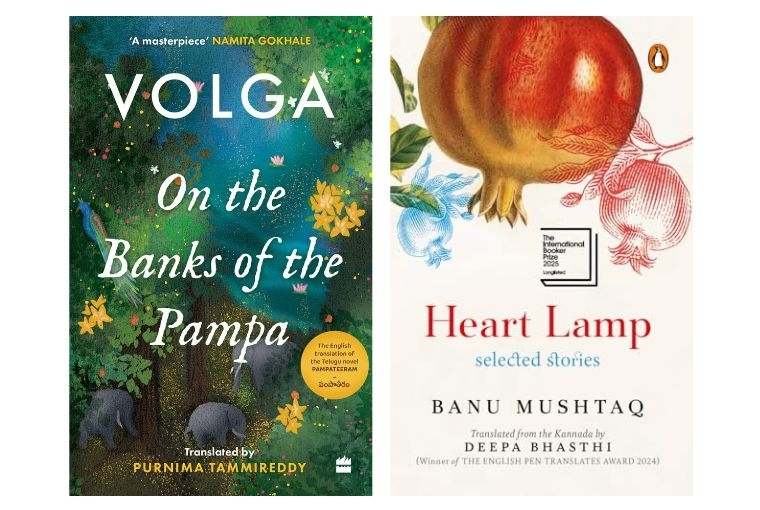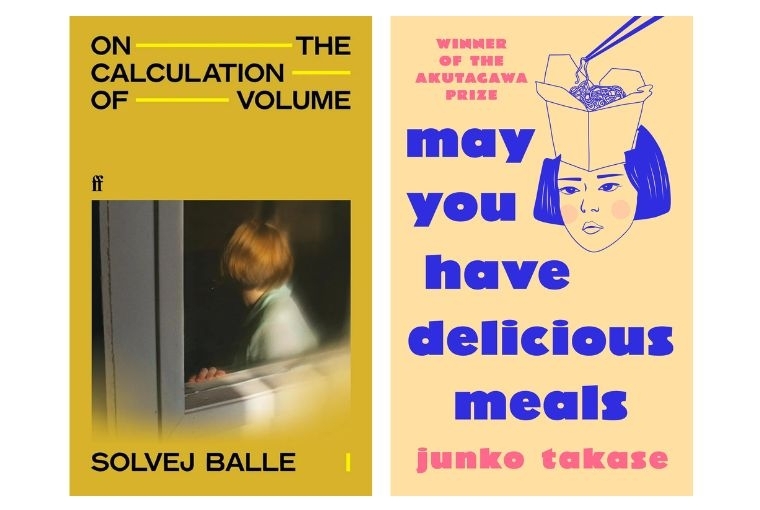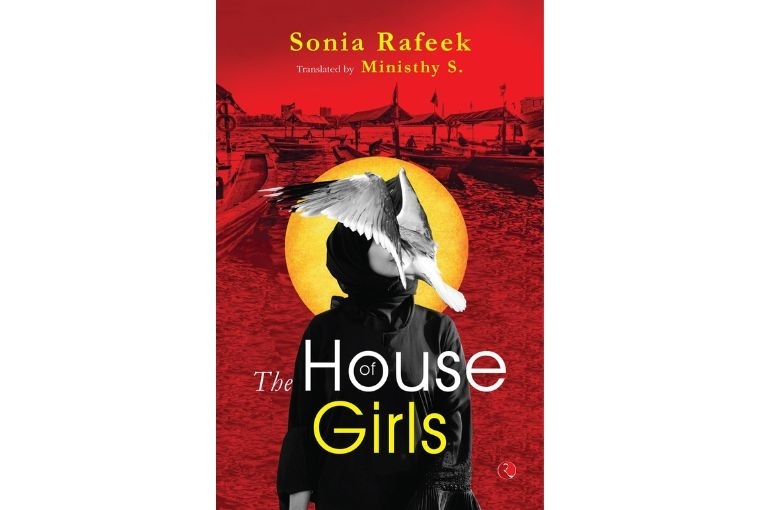

August brings along new seasons, feelings and joy with it, and one of the greatest joys of this month is its celebration of Women in Translation. The translation landscape, globally, has truly been remarkable over the past few years in its contributions to literature. Reading translated work has become the norm, rather than the exception. This wave of accessibility has been championed by many women across the world who spend their lives bringing regional stories to the forefront. In honour of that, here is a Platform curated list of recently released novels written and translated by women.
Maria, Just Maria by Sandhya Mary, tr. by Jayasree Kalathil
Sandhya Mary’s novel Maria, Just Maria – masterfully translated by the award-winning Jayasree Kalathil – is an insightful and humorous take on ideas like normal-abnormal, natural-human, love-hate, etc. that define contemporary society, and the exuberant and moving story of a woman trying to find her place in this world. The title is quite straightforward — it is a story of a girl called Maria trying to recall her journey of being ‘just Maria’. The story further features Chandipatti, an anthropomorphic dog, who speaks only to Maria, and is a showstealer of the entire narrative. Identity, mental health and individuality form the core of this book.
Silken Gazelles by Jokha Alharthi, tr. by Marilyn Booth
The language of Silken Gazelles is delicate and lyrical, and Arabic, with its poetic and playful nature, carries that beauty naturally. The translator, Marilyn Booth, does a wonderful job preserving that feeling in English. Jokha Alharthi opens up so many important topics — family, silence, tradition, female agency, religion — all handled with grace. Many of these themes are specific to the Gulf and Omani context, and are explained very subtly, which reveal much more than what a direct explanation might. This is a very female centric book, and promises a storyline of three women whose lives become intricately woven with each other. It is about friendship and the loss of it.

On the Banks of the Pampa by Volga, tr. by Purnima Tammireddy
On the Banks of the Pampa is a quiet yet radical reimagining of Sabari’s story. Sabari is a character from the Ramayana, a forest dweller whose narrative is entwined with the forest along the Pampa river—one she comes to dwell in, where the human and non-human worlds exist in harmony. It traverses devotion, displacement, and ecological resistance, all at once. In this powerful retelling of a moment from the Ramayana, author Volga and translator Purnima Tammireddy explore the emotional depth and political urgency of waiting, belonging, and bearing witness.
Heart Lamp by Banu Mushtaq, tr. by Deepa Bhasthi
Winner of the International Booker Prize 2025, Banu Mushtaq’s Heart Lamp deserves all the love it has received over the past few months — this spectacular collection of stories is a commentary on patriarchy, tradition, and the quiet lives Indian Muslim women lead. Her stories are mirrors, instruments of truth, that display a reflection of the limits of Muslim families in rural Karnataka. The translation, undertaken by Deepa Bhasthi, leaves many words untranslated, which only contributes to the authenticity of these stories, which serve as a phenomenology of the everyday.

On the Calculation of Volume by Solvej Balle, tr. by Barbara J. Haveland
The setting of this novel is quite simple: a woman lives the same day, the 18th of November, over and over again, while everyone around her – and, seemingly, so far, everyone else in the world – remains ignorant of this phenomenon. Despite the high-concept premise and the literary wonderland of a ‘seven-volume novel in translation’, it is an easy read. The style is straightforward, which is a clever, effective way to underline the sheer boredom and disorientation of living inside a repeating day. The translation, done by Barbara J. Haveland, really drives home a message: the terrifying knowledge that everything could change and the acceptance that our lives resemble travelling with no itinerary.
May You Have Delicious Meals by Junko Takase tr. by Morgan Giles
There is always politics at play when it comes to food, and May You Have Delicious Meals by Junko Takase, and translated by Morgan Giles, is an exploration of that. This book is a depiction of these politics, and specifically narrows down on the ideas around eating food at a workplace. The workplace dynamics are amusing, highly relatable and flavourful. The tensions of modern life: indulgence and restraint, leisure and hardwork, all find a place for themselves in this story.

The House of Girls by Sonia Rafeek, tr. Ministry S.
Sonia Rafeek’s third novel The House of Girls is a historiographic metafiction crafted in a ‘novel within novel’ format. The story kicks off with the protagonist Nazia Hassan, working as a receptionist in a hospital in Dubai, receiving a book by courier written by someone else in her name. Embarrassed to the core, she tries to hide it, yet longs to see its contents. It further unravels the lives of three sisters who remained unmarried and made their living through small scale businesses. Translated by Ministhy S., this women-centric novel talks about their aspirations for freedom and the battles they fought to establish their identities—both inside and outside the home.
Words Neeraja Srinivasan
Date 13-8-2025